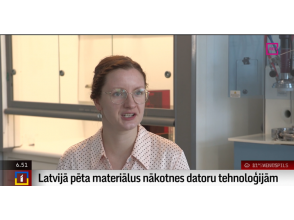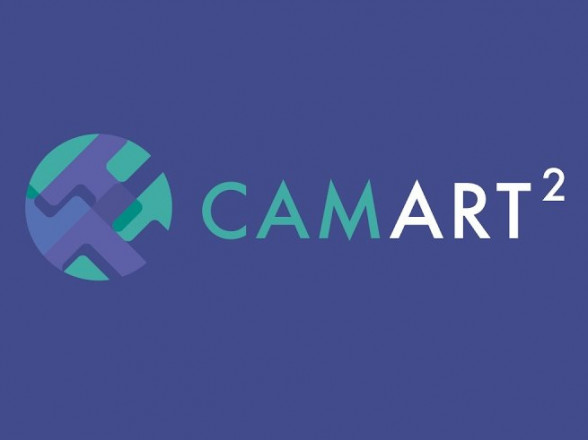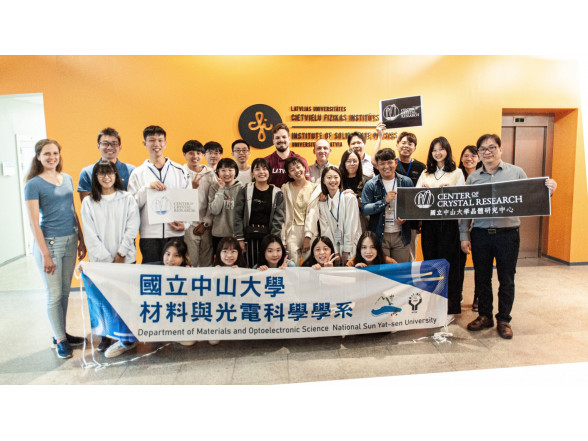On October 11, the National Television (LTV) morning show “Rīta Panorāma” (Morning Panorama) showed a story about the receiver of this year’s L`Oréal-UNESCO Prize for Women in Science, Katrīna Laganovska. She is a researcher in the ISSP UL’s Laboratory of Optical Materials, where she is working on materials that could revolutionize the architecture of computers, making them much faster and more powerful.
Katrīna Laganovska’s interest in science, unbeknown to her at the time, started at a very young age: "I have been quite science-oriented since I was a child. Of course, it wasn’t called that when I was a kid, but even then, I liked to hypothesize, test circumstances and come to some conclusion, which probably included some nonsense."
From childhood play, Katrīna has come to science. Her current research focuses on optical properties and defects in ferroelectric metal oxides, or as she puts it, "the drama of the scientific community".
To put it simply, Katrīna works on materials that will completely change the architecture of computers in the future. These materials, such as hafnium oxide, could be used as computer storage capacity, but not only that. She explains: “We have this memory property and the transistor property. We could switch it from one property to another, which is how a transistor works. If we have a transistor like this that can act as both a memory and a two-in-one logic switch, it will already mean a whole new computer architecture.”
This type of computer would work much faster because it would not, as has been the case until now, have to connect memory and processor blocks together. Katrīna continues explaining, "With such transistors, it would be memory and processor in one block. The whole memory communication is much faster, and the size is also smaller. But we still have to wait a bit longer to see how it will work in practice."
Colleagues describe Katrīna as a scientist who can quickly learn new things, delving into a wide range of topics. Besides, it is nice to have work-related communication with her as she has a good sense of humor, which is very important in a work environment. Colleagues also describe her as supportive and sharing her knowledge with other colleagues.
In science, Katrīna is fascinated by the different research opportunities. Once, she read a paper on the ferroelectric phase and immediately went to her boss, saying: “This is what we need to study”.
At the end of the TV story, Katrīna Laganovska discloses that science is the perfect job for her, and she cannot think of anything better. She adds that her research now is only at an early stage, but in about a year, she will be able to present some results that could be useful for the computer industry.



